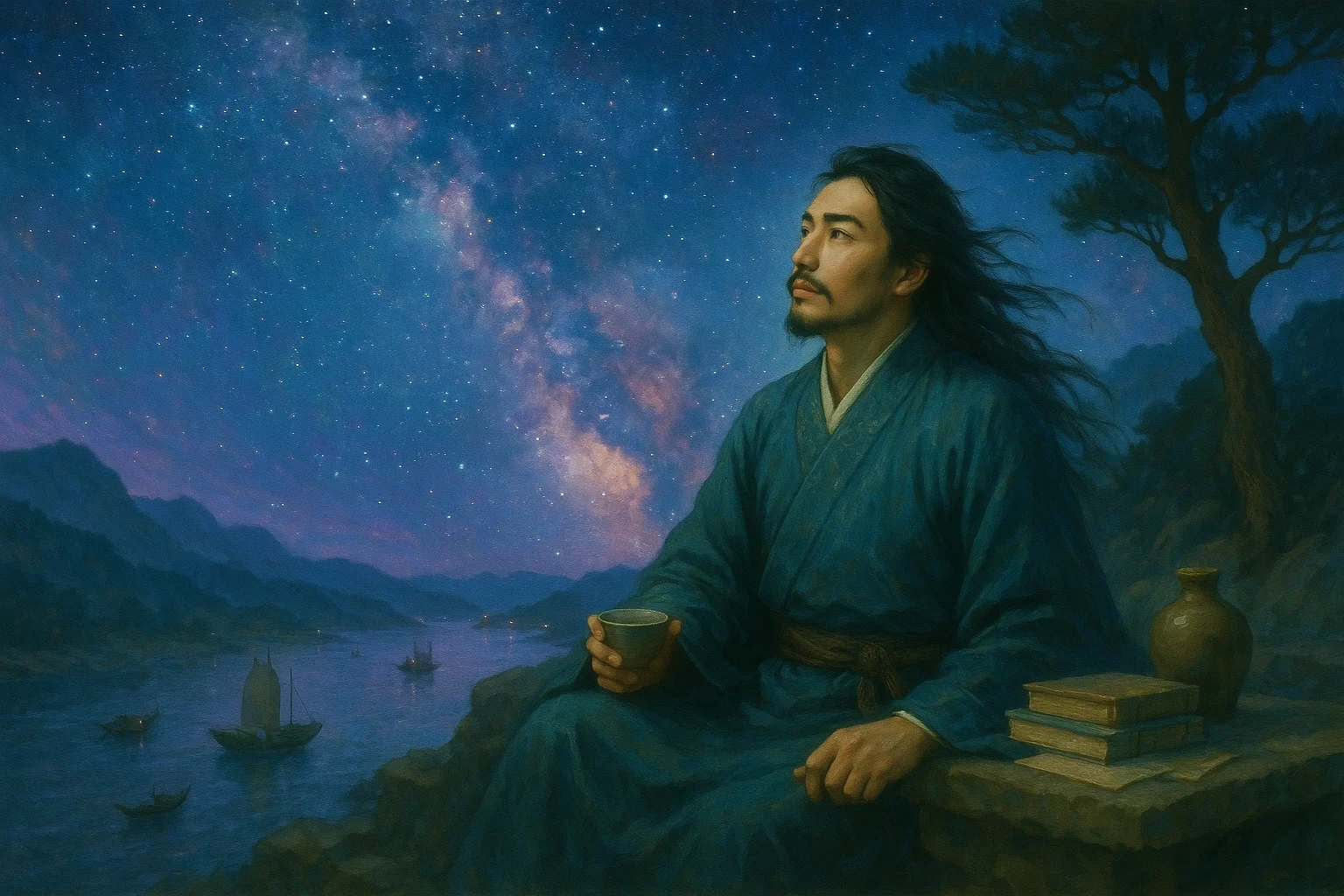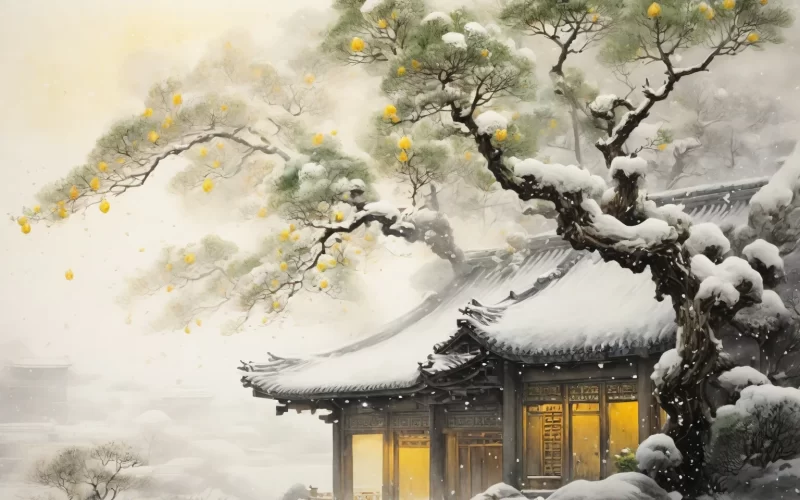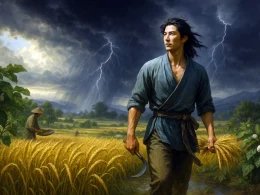On vernal day no flowers were in bloom, alas!
In second moon I'm glad to see the budding grass.
But white snow dislikes the late coming vernal breeze,
It plays the parting flowers flying through the trees.
Original Poem
「春雪」
韩愈
新年都未有芳华,二月初惊见草芽。
白雪却嫌春色晚,故穿庭树作飞花。
Interpretation
This poem was composed during the Tang Dynasty and is a lyrical piece that uses scenery to express emotion. Through the depiction of a snowy scene in early spring, the poet conveys his longing for and delight in the arrival of spring. The poem employs personification, imbuing the snow with life and a sense of romanticism, reflecting the poet's optimistic and open-hearted spirit.
First Couplet: “新年都未有芳华 二月初惊见草芽。”
Xīn nián dōu wèi yǒu fāng huá èr yuè chū jīng jiàn cǎo yá.
As the New Year arrives, there are still no fragrant flowers; in early February, I am startled to see tiny grass sprouts.
The poet begins with "New Year," emphasizing his eagerness for spring amidst the lingering winter. The phrase "still no fragrant flowers" conveys his impatience and disappointment at the delayed arrival of spring. The word "startled" captures his surprise and joy at discovering the grass sprouts, showcasing his keen awareness of life's subtle signs even in the lingering cold.
Second Couplet: “白雪却嫌春色晚 故穿庭树作飞花。”
Bái xuě què xián chūn sè wǎn gù chuān tíng shù zuò fēi huā.
The white snow, resentful of spring's tardiness, flutters through the courtyard trees like blooming flowers.
These lines personify the snow, giving it a sense of agency. The snow, "resentful of spring's tardiness," seems to take on the role of spring blossoms, as if eager to compensate for the delayed arrival of spring. This imaginative transformation of snow into flowers not only enlivens the scene but also reflects the poet's ability to find joy and beauty even in the lingering cold, embodying his optimistic and resilient spirit.
Overall Appreciation
The poem centers on the theme of spring snow, using the imagery of "grass sprouts emerging" and "snowflakes dancing" to capture the vitality of early spring. The first two lines set the tone with the disappointment of "no fragrant flowers," but the discovery of grass sprouts brings a sudden shift to joy. The latter two lines, through the personification of snow, transform the cold snowscape into a lively spring scene, reflecting the poet's optimistic and open-hearted outlook. The poem intertwines the emotions of "longing for spring" and "cherishing spring," revealing both the poet's eagerness for spring's arrival and his keen sensitivity to the subtle changes in nature, as well as his positive and uplifting spirit.
Writing Characteristics
- Clear Structure, Emotional Fluctuations: The first two lines begin with the disappointment of "no fragrant flowers," while the discovery of grass sprouts brings a shift to joy. The latter two lines deepen the emotion with the snow's "resentment," turning melancholy into delight, creating a layered and rhythmic progression.
- Personification, Infusing Life into Nature: The line "the white snow, resentful of spring's tardiness" gives the snow human emotions, making the poem lively and engaging. This not only enhances the poem's emotional impact but also highlights the poet's rich imagination.
- Concise Language, Elegant Imagery: With just a few strokes, the poet paints a unique snowy scene of early spring, creating a fresh and delicate atmosphere that captures the vitality and hope of the season.
Insights
This poem conveys a positive and uplifting philosophy of life. In the face of life's winters and hardships, we may feel anxious and disappointed when our hopes are delayed. However, just as the grass sprouts eventually emerge and the snow transforms into dancing flowers, there are always moments of beauty quietly sprouting or surprising us unexpectedly. The poet's joyful and open-hearted attitude reminds us to maintain hope for better things even in difficult times and to find extraordinary joy in the ordinary. This optimistic and resilient spirit is the profound sentiment the poet seeks to impart.
Poem Translator
Xu Yuan-chong (许渊冲)
About the Poet

Han Yu (韩愈, 768 - 824), originario de Mengzhou en Henan, fue el líder del Movimiento de la Prosa Antigua durante la dinastía Tang. Obtuvo el título de jinshi en 792 y ascendió al cargo de Viceministro de Personal. Su prosa es vigorosa y poderosa, mientras que su poesía se caracteriza por un estilo audaz y poco convencional. Su poema Rocas de la Montaña (山石) inauguró la técnica de "prosificar la poesía". Fue mentor de poetas como Meng Jiao y Jia Dao, y es considerado el principal de los "Ocho Grandes Maestros de la Prosa de Tang y Song". Sus contribuciones revolucionarias a la literatura tuvieron una influencia profunda y duradera, lo que le valió el título honorífico de "Maestro Literario de las Generaciones".












